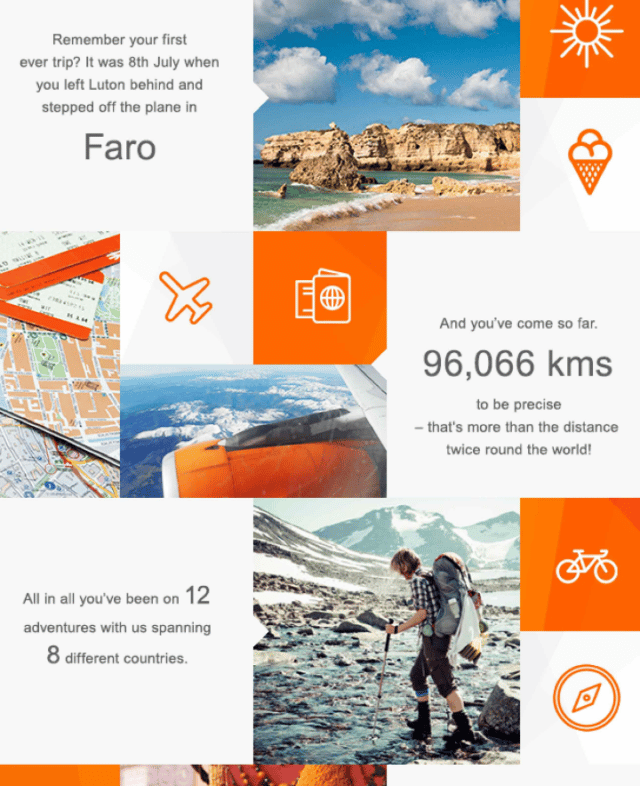Failing Forward: Higher Ed Marketing Innovation
Many schools are hesitant to adopt higher ed innovation in their marketing strategy, but the benefits far outweigh the risks. Learn how innovation can change the game for your school!
Marketing Strategies
A few years ago, I witnessed first-hand the power of personalizing the student prospect experience.
In last year’s mascot marketing podcast blog, I told the story of my oldest son Ben’s school application experience.
He applied to and was accepted by several schools. But his ultimate landing spot, Butler University, took a unique approach to stand out from the crowd.
Upon learning from Ben’s application that we had family pets – Tigger, our dog, and Stormy, our cat – Butler sent two letters courtesy of their mascot, Blue the Bulldog.
Each letter was addressed separately to Tigger and Stormy. In Tigger’s, Blue congratulated him on his human being accepted to Butler and also promised to watch over Ben.
Stormy’s correspondence was a bit more brusque, as you might imagine a fantastical letter from a bulldog to a cat would be. It was hilarious.
But, more importantly, it worked. It undoubtedly influenced my son’s decision to enroll at Butler.
Butler secured a student prospect because they leveraged personalized marketing for the cost of two U.S. postal stamps and some witty copywriting.
Your school may not have a lovable floppy-eared canine prowling the campus, but that’s okay!
With more big data at our disposal than at any time in history, it’s easier than ever for academic institutions to personalize outbound marketing content.
I’ve addressed why you should focus on marketing personalization in your higher ed enrollment strategy. Now, I’d like to expand on the how.
In the last few years, I’ve connected with remarkable people innovating several personalization features. And I want to pass those tools on to you.
So, here are seven ideas your college or university can use today for personalizing the student prospect experience!
If you want to boost your chances of emotionally engaging a prospective student, especially in Gen Z, then video is your moneymaker.
As you’ll see further down, written media is alive and well (after all, here you are!), but nothing beats the nuanced connection that facial expressions and body language can provide.
With a wide range of features, such as browser extensions and captioning, BombBomb is a sleek and cost-effective video messaging service.
They are a user-friendly service that allows you to send high-quality personal videos through email.
Full transparency: I am a BombBomb affiliate. However, I can attest to their effectiveness as someone who’s personally used their service well over a thousand times.
Thanks in part to COVID, the death of the QR code is greatly exaggerated!
The folks at Spokenote have also breathed new life into this smartphone-adjacent tech. You can record a personalized video using their QR code stickers and then “physically” send the footage to a prospective student.
Attach it to an acceptance letter, postcard, or care package – the possibilities are endless!
(Check out our interview with Spokenote’s CEO, John Wechsler, and CMO, Mike Harmon, on The Higher Ed Marketer podcast on October 11th for more insights into using QR codes for your marketing content!)
The selection at Cameo has drastically increased since I first wrote about them two years ago.
While Mr. Wonderful from Shark Tank may be a smidge out of your school’s price range, thousands of YouTube, TikTok, and other celebrities are available for a personalized shoutout.
If your prospect’s fandom for any of these stars has leaked through in a questionnaire, then Cameo is worth investigating.
To the uninitiated, the notion of integrating personalization targeted at an individual on a website may sound nonsensical.
However, live chat and machine learning AI has made what was once science fiction a reality.
People are remarkably self-sufficient.
But if a prospective student is perusing your website, there’s a good chance they have detailed questions about your institution.
Live chat systems, like the one the folks at Olark provide, can help give visitors instant answers without having to navigate away from your site. Olark also allows you to save chat histories so you can curate more personalized insights after the fact.
And in the absence of a human representative, their chatbot can assist with simple, common queries.
For clarification, a landing page is not necessarily a website’s home page. Instead, it’s whatever page a visitor lands on when navigating to a website.
So, why employ a personalized landing page for a prospective student?
The glaring answer would be that web pages allow far greater customization than static media, like letters or emails.
Consider my son’s letters from Butler. What if, rather than classic “snail mail,” they emailed him a link to a custom URL on the school’s site displaying those personalized messages with enhanced visuals and audio?
Would that have added any value to Butler’s brilliant presentation? For prospective students who crave video, possibly.
But remember, a personalized landing page is not the place for an information dump – it’s about your recruit, not you.
Video may have stolen the personalization crown, but the written word is still an effective (and cost-efficient) vehicle for conveying personalized messages.
In 2015, Swiss airline easyJet celebrated their 20th anniversary with an ingenious email marketing campaign.
Rather than a self-congratulatory marketing push, they gathered travel data for each client and packaged it into a beautiful collage that praised the customer.

EasyJet personalized each email with compiled statistics from their trips, celebrating their journeys. Now, imagine a similar template for your prospective students.
You may think, “That looks great, Bart, but we’re not corporate! We don’t have all of that preexisting data at our disposal.”
Trust me – you do. Ninety-three percent of Gen Z is on social media. How many of them do you suppose have accounts on multiple platforms?
People post about significant personal achievements and other landmark events on social media all the time! The information is out there if you’re willing to invest the time to find it.
And if your potential recruit hasn’t posted their interests on public forums, just ask them!
For instance, how do you think Butler knew intimate details about our family pets? They simply pulled it from the common application my son filled out.
If you can show prospective students genuine involvement on a personal level, they will reciprocate that interest.
EasyJet’s wonderful example aside, personalizing an email is easier than you may think. Check out this article for more tips on upping your email game!
Did you know that about 44 percent of Gen Z and Millenials open their direct mail?
Also, according to this study, Gen Z’s direct mail response rate is about 10 to 30 percent higher than their email response rate.
Those are pretty good numbers if you ask me.
The obvious example of personalized direct mail would be Blue’s letters, but that requires expanding on Butler’s variable content strategy.
Clearly, a marketing team can’t account for every possible data point when personalizing content. Instead, you can create templates that allow you to plug in appropriate variables that will speak to your audience.
Butler’s letters to our family pets are a perfect example of open variable content. Blue’s messages were pre-scripted. Butler’s marketing team merely had to plug in the names of our pets.
However, let’s assume Butler only knew my son’s favorite hobby was “X.” With hundreds, maybe thousands, of different hobbies spread across the prospective student pool, you can’t possibly generate unique content for each.
In this case, you would utilize a set of closed variables. Rather than focusing on specific hobbies, perhaps put together a dozen or so templates covering broader categories.
For example, if my son’s favorite hobby was fishing, Blue might have responded with his shared love for the outdoors. We call this refining your closet set.
So, don’t get hung up on personalizing the student prospect experience down to the letter (no pun intended) when a few key inputs will suffice.
Video messaging, school website customization, and written dialogue are some of your most robust opportunities to give prospective recruits the personal touch they deserve.
But it all starts with communication.
You can’t expect tangible information to fall into your lap as it did for Butler with my son’s common application. More often than not, you have to work for it.
So, reach out to your leads and ask them for it through a form, quiz, or maybe even a game.
After all, you can’t personalize your student prospects’ data if you don’t have it!
If you’d like to discuss any of the ideas you’ve read about here, please reach out to me!
You’re in luck! We’ve curated 25 awesome ideas inspired by top higher ed institutions across the country and put them in one handy guide: 25 Ideas for Great Admissions Content. 
Get inspired.
Get enrollment results.
Get 25 Ideas for Great Admissions Content.
Download your copy today!
Featured image by JustLife via Adobe Stock
Subscribe to The Higher Ed Marketer podcast today!